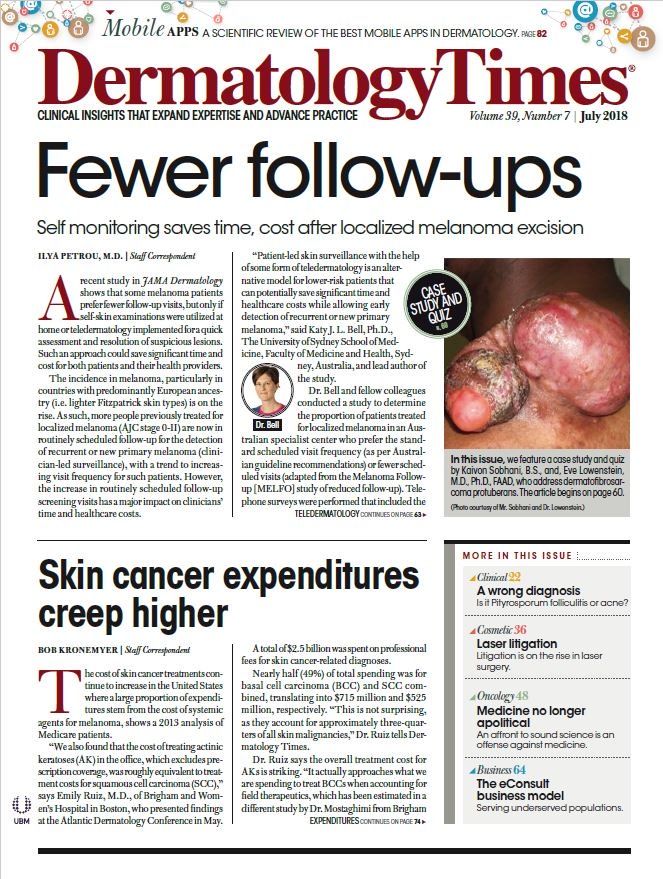- Case-Based Roundtable
- General Dermatology
- Eczema
- Chronic Hand Eczema
- Alopecia
- Aesthetics
- Vitiligo
- COVID-19
- Actinic Keratosis
- Precision Medicine and Biologics
- Rare Disease
- Wound Care
- Rosacea
- Psoriasis
- Psoriatic Arthritis
- Atopic Dermatitis
- Melasma
- NP and PA
- Skin Cancer
- Hidradenitis Suppurativa
- Drug Watch
- Pigmentary Disorders
- Acne
- Pediatric Dermatology
- Practice Management
- Prurigo Nodularis
- Buy-and-Bill
Publication
Article
Dermatology Times
Dosing schedules that optimize outcomes
Author(s):
Changing the schedule of targeted therapies has been shown to improve the response rate in a mouse model of melanoma.
Changing the schedule of targeted therapies has been shown to improve the response rate in a mouse model of melanoma, according to a report in Cancer Discovery. Continuous MEK inhibition with intermittent CDK4/6 inhibition led to a higher rate of complete responses compared with other combination schedules.
“We are looking to optimize the combinations of targeted therapies and the scheduling of those therapies, so we can improve tumor shrinkage and minimize potential toxicities for a patient,” said Andrew Aplin, Ph.D., co-investigator and program leader for Cancer Cell Biology and Signaling in the Sidney Kimmel Cancer Center at Jefferson Health, Philadelphia.
Dosing schedules of combination therapy two using targeted agents on human melanomas grafted onto mice were studied.
Both agents given intermittently (3 weeks on/1 week off) was the least effective schedule, with tumor regrowth during drug treatment and partial response to retreatment following the drug holidays. By the third cycle, most tumors no longer responded to therapy.
More effective inhibition of tumor growth was observed with continuous dosing of either the CDK4/6 inhibitor or MEK inhibitor with intermittent dosing of the other drug. Exploring that result further, continuous MEK inhibition with intermittent CDK 4/6 inhibition was found to inhibit tumor growth the most, with some shrinking to undetectable levels. There was no significant anemia or neutropenia with any of the various dosing schedules.
Several mechanisms leading to tumor resistance were discovered, providing the researchrs insight into which drugs could combat resistant cancer. “The surprising part was that the mechanisms of resistance all funneled through one signaling pathway, ultimately, but the way that they start is frequently different,” said Dr. Aplin. When that common pathway was blocked with an mTOR inhibitor, in addition to continuing the optimized Mek inhibitor and CDK 4/6 inhibitor therapies, resistance was effectively turned off, and the tumors resumed shrinking.
REFERENCE
Jessica L.F. Teh; Phil F. Cheng; Timothy J. Purwin; et al. “In vivo E2F reporting reveals efficacious schedules of MEK1/2-CDK4/6 targeting and mTOR-S6 resistance mechanisms,” Cancer Discovery. Published online March 1, 2018. DOI: 10.1158/2159-8290.CD-17-0699, 2018.






